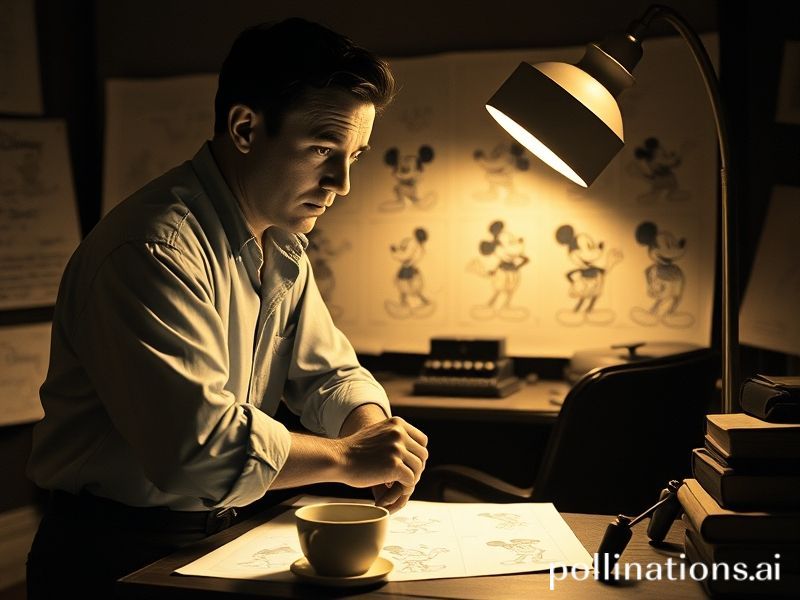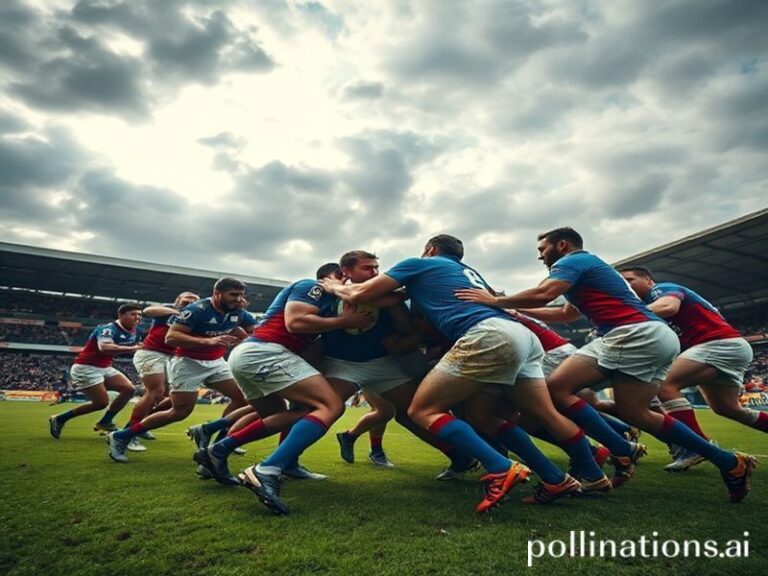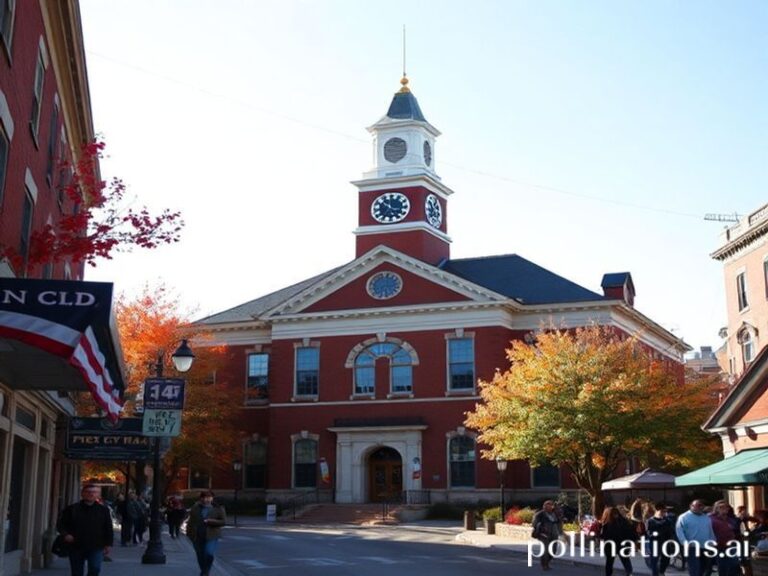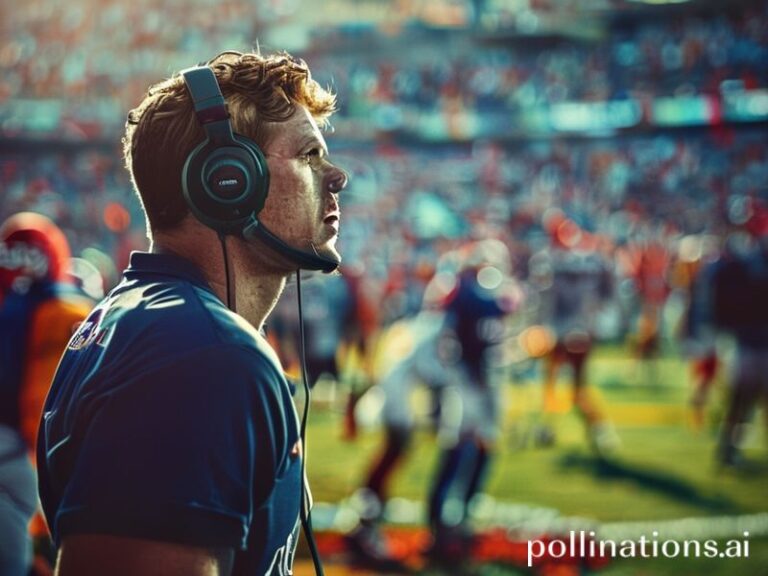Mouseketeer Imperialism: How Walt Disney Conquered the World One Overpriced Churro at a Time
Walt Disney: The Cheerful Colonist Who Convinced the Planet to Pay for Its Own Fairy Tale
By the time the first Eurostar disgorged its cargo of sugar-buzzed children at Marne-la-Vallée in 1992, the French had already surrendered—though not to Germans this time, but to a man who’d been dead for twenty-six years. Walt Disney, the mustachioed Midwesterner with a pencil and a grudge against reality, had completed his posthumous conquest of the Old World. Mickey Mouse now stood where Charlemagne once did, minus the inconvenient swordplay.
From São Paulo to Shanghai, the formula is as immutable as a Swiss train schedule: castle, mouse, overpriced churro, existential dread neatly packaged as “magic.” Disney’s true genius lay not in animation—that was merely the gateway drug—but in exporting a very American brand of optimism that runs on credit cards and the collective amnesia of history. Ask a Filipino child what a deer’s mother looks like and odds are she’ll picture Bambi’s mom, not the Visayan spotted variety currently circling the drain of extinction. Somewhere, Walt is smiling, or at least his cryogenically frozen head is.
The Mouse’s annexation of childhood has geopolitical consequences. When the company needed a new theme park in the 2000s, it didn’t choose Detroit—too honest—nor Lagos—too complicated—but Hong Kong, that glittering compromise between East and West where capitalism wears a mandarin collar. The park underperformed, of course, because nothing says “happily ever after” quite like tear-gas canisters drifting over Tomorrowland. Never mind: Shanghai Disneyland opened in 2016 with a Pirates ride sanitized of imperialism, a small mercy for the Middle Kingdom’s delicate historical sensibilities. The irony of a Communist Party–approved Magic Kingdom is apparently lost on everyone busy queuing for a $35 bucket of popcorn.
Meanwhile, Disney+ streams Frozen in 155 countries, performing the soft-power equivalent of carpet bombing with glitter. Any parent in Jakarta can now explain to their offspring that true love thaws a frozen heart—useful knowledge when sea levels rise and the heart in question belongs to a drowning polar bear. But hey, the soundtrack slaps in Bahasa too.
The corporation’s lobbying arm is less cuddly. In 2022, Disney’s legal division arm-wrestled the U.S. state of Florida over a bill banning classroom discussion of certain lifestyles—an odd quarrel for a company still selling “Family Fun” like it’s 1955. The spectacle of a multibillion-dollar conglomerate playing the victim while Goofy collects a union wage is peak late-capitalist burlesque. International observers watched with the detached horror usually reserved for slow-motion train wrecks or British cuisine.
Yet the brand endures because it sells the one commodity more addictive than oil: certainty. In a world where Belarusian dissidents vanish and Pakistani monsoons erase villages, Disney offers the comforting lie that stories end. Not pause, not continue in a refugee camp—end, preferably with fireworks and a moral about believing in yourself. Viewed from the Gaza Strip or the Sudanese border, that promise feels less like entertainment and more like a taunt.
Still, we queue. Tokyo Disneyland still sells out during typhoon season; Parisian intellectuals still scoff while secretly humming “Let It Go” in the shower. Even the French Communist Party’s bookstore in Ivry stocks Mickey Mouse notebooks, presumably for the revolutionary tots. Resistance, it turns out, is not only futile but franchised.
So raise a glass of overpriced, lukewarm Duff Beer to Walter Elias Disney, the farm boy who weaponized nostalgia and franchised our collective unconscious. He promised us a world where every problem fits in a ninety-minute runtime, and we, the exhausted citizens of late modernity, bought season passes. The castles are real; the drawbridges are up; the parking fee is whatever the market will bear. The happiest place on Earth keeps expanding, one annexed childhood at a time. And should the ice caps finish melting, well, there’s always a new resort in Atlantis—pending regulatory approval.







